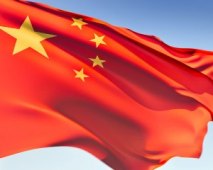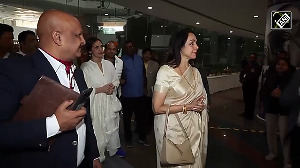 China and India may not be the best of friends at global levels but when it comes to business, differences take a back seat.
China and India may not be the best of friends at global levels but when it comes to business, differences take a back seat.
Tata Motors' luxury automotive brand, Jaguar, bagged a three-year order to supply 13,000 units of its range to a Chinese company earlier this year. Its Land Rover, jointly with Jaguar, is charting new territories for expansion.
In little over a year, China has become the third largest market for Jaguar and Land Rover, up from the fifth position in 2008.
While Tata Motors is planning to reduce the number of national sales companies of JLR (it has at least 20) as an added effort at containing costs, China's growing significance is forcing it to set up a sales company in that country.
Speaking to a Chinese daily, David Smith, chief executive officer of JLR said: "We will add significantly to our dealer networks and bring in an increased range of products to the country. China will be very central in all of our plans and Chinese customers will be very central to our new product development initiatives."
JLR sales are expected to rise by 10 per cent this year, as compared to 12,456 units sold last year, stated company executives.
Mumbai-based Mahindra & Mahindra is planning to double the production of tractors from its two manufacturing sites in China over the next few years.
It says the domestic market for geared tractors in China has grown at over 30 per cent compounded annually over recent years, to reach the 200,000-level, making it the second largest market in the world after India.
Says Anjanikumar Choudhari, president -- farm equipment sector, M&M: "This growth has been fuelled by the policies of the government of China. Their aim is to slow urban migration by helping the rural economy to grow much faster than it has.
"The policy encourages significant increase in agriculture mechanisation by subsidising use of fuel-efficient geared tractors, as opposed to power tillers and belt-driven tractors. During this calendar year, the government subsidy is likely to be $2.53 billion, which is used to provide up to 30-40 per cent discounts to farmers who wish to buy modern farm equipment."
M&M operates in China through two companies -- Mahindra China Tractor Company, a JV between the Jiangling Motors Company Group and M&M FES and through Mahindra Yueda Yancheng Tractor Company, a JV between China's third largest tractor maker and M&M FES.
M&M recently set up a state-of-the-art manufacturing plant with a capacity in excess of 50,000 tractors per year in China. The company aims to sell between 25,000 and 30,000 tractors in this financial year, contributing 15-18 per cent of its global volumes.
Another Indian company looking to cash in on the cost advantage offered by China is Pune-based Bajaj Auto. The company wants to make China the base for manufacturing its Boxer motorcycle (the Bajaj brand name is missing on the bike), later shipped to markets in Africa such as Nigeria.
Bajaj says manufacture of ultra low-cost bikes like Boxer is possible only in China, which is also playing host to other manufacturers that produce and sell in local as well as export markets.
The Boxer is a low-cost, 125cc bike from the Bajaj stable and would cost about Rs 20,000-24,000 in India upon launch. Bajaj has already exported well over 14,000 units of the bike and plans to ramp up production moving forward.
Does that mean India is losing its cost advantage to China?
Kapil Arora, partner, Ernst & Young, says, "China is certainly a large market for commercial and passenger vehicles and known for its low production costs in areas like manpower and raw materials. India is known for its component supply, its quality, and research and development; it is regarded as a reliable sources for components.
"There will be no short-term threat to India. However, markets like Europe and America will now look towards low-cost countries for investments, so in that regard, India will have to compete with China in the long run."
The Chinese car market is more than six times the size of the Indian one, at sales of nearly 10 million vehicles. In comparison, India's passenger vehicle market is little more than 1.5 million units. India, however, remains the world's largest market for two-wheelers.






